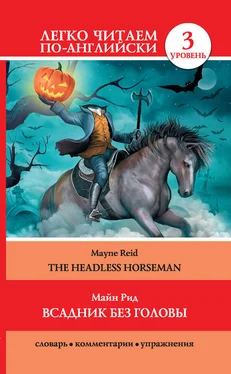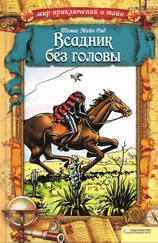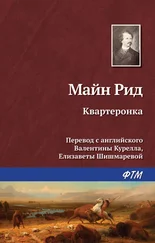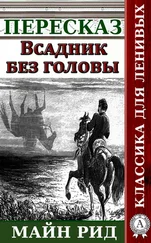“Quite true.”
The answer sends a thrill through the crowd – a thrill of indignation. It confirms the story of Calhoun.
“My brother did not follow him in anger,” pursues the witness, without being further questioned. “He had forgiven Mr Gerald; and went after to apologise.”
After a few more questions, eliciting answers explanatory of what she has last alleged, the lady is relieved from her embarrassing situation.
She goes back to her carriage with a cold heaviness at her heart: for she has become conscious that, by telling the truth, she has damaged the cause of him she intended to serve. Her own too: for in passing through the crowd she does not fail to perceive eyes turned upon her, that regard her with an expression too closely resembling contempt! She remembers the significant speech of Calhoun: that from her own lips were to come the words that would prove Maurice Gerald a murderer!
Phelim O’Neal is conducted to the stand.
His story, confusedly told, full of incongruities – and in many parts altogether improbable – rather injures the chances of his master being thought innocent.
The San Antonio counsel is but too anxious for his testimony to be cut short – having a firmer reliance on the tale to be told by another.
That other is next announced.
“Zebulon Stump!”
Taking three or four strides forward, the most noted hunter of the Settlement comes to a stand upon the spot set apart for the witnesses.
After a few preliminary questions, Zeb is invited to give his version of the strange circumstances, which, have been keeping the Settlement in a state of unusual agitation.
The spectators stand in expectant silence. There is a general impression that Zeb holds the key to the whole mystery.
“Well, Mister Judge!” says he; “I’ve no objection to tell what I know about the business; but if it’s all the same to yourself, and the Jury, I’d prefer that Maurice Gerald should give his version first. I could then follow with mine, which might certify and confirm his.”
The judge and the “twelve” have no objection to Zeb’s request.
Answer the following questions:
1) Where did the Court establish itself? Who was present at the trial?
2) Who was called up a witness? What effect did their testimony produce?
3) Why did Louise “go back to her carriage with a cold heaviness at her heart”?
4) What was Zeb Stump’s suggestion?
Directed by the judge, the accused stands forward.
“Judge, and gentlemen of the jury!” says he; “First, have I to say: that, notwithstanding the many circumstances mentioned during the course of this trial – which to you appear inexplicable – my story is simple enough; and will explain some of them.
“Not all of the statements you have heard are true. Some of them are false as the lips from which they have fallen.”
The speaker’s glance, directed upon Cassius Calhoun, causes the latter to quail.
“It is true that I met Miss Poindexter, as stated. It is also true that our interview was interrupted by him who is not here to speak to what occurred after.
“It is true that angry words passed between us, or rather from him to me: for they were all on his side.
“But it is not true that the quarrel was afterwards renewed; and the man who has so sworn dared not say it, were I free to contradict him as he deserves.”
“On the contrary,” continues he, “the next meeting between Henry Poindexter and myself, was one of apology on his part, and friendship – I might say affection – on mine.”
“There was a reconciliation, then?” asks the judge. “Where did it take place?”
“About four hundred yards from the spot where the murder was committed.”
It is the first time any one has spoken positively of the spot where the murder was committed; or even that a murder has been committed at all!
“You mean the place where some blood was found?” interrogates the judge.
“I mean the place where Henry Poindexter was assassinated.”
There is a fresh exhibition of astonishment in the Court – expressed in muttered speeches and low exclamations. One louder than the rest is a groan. It is given by Woodley Poindexter; now for the first time made certain he has no longer a son!
“You are sure he is dead, then?” is the question put to the prisoner by the prosecuting counsel.
“Quite sure,” responds the accused.
“Go on!” says the judge. “Let us hear all you have to say.”
“It has been made known to you how we parted – Miss Poindexter, her brother, and myself.
“On leaving them I went to the hotel. The house was still open, and the landlord behind his bar. I took it into my head to set out at once for the Alamo, and make the journey during the cool hours of the night.
“I had sent my servant before, and intended to follow in the morning; but what happened at Casa del Corvo made me desirous of getting away as soon as possible.”
“I travelled slowly. I was in no mood for going to sleep that night; and it mattered little to me where I should spend it – on the prairie, or under the roof of my jacale. I knew I could reach the Alamo before daybreak.
“I never thought of looking behind me. I had no suspicion that any one was coming after; until I had got about half a mile into the chapparal.
“Then I heard the stroke of a horse’s hoof, that appeared hurrying up behind.
“It was more from habit – by living in the neighbourhood of the Indians – that I drew in among the trees, and waited until the stranger should show himself.
“He did so shortly after.
“You may judge of my surprise when, instead of a stranger, I saw the man from whom I had so lately parted in anger. When I say anger, I don’t speak of myself – only him.
“Was he still in the same temper? Had he come after me to demand satisfaction for the injury he supposed his sister to have sustained?
“I shall not deny, that this was the impression on my mind when I saw who it was.
“I was determined there should be no concealment – no cowardly shrinking on my part. I loved his sister with a pure honest passion, and with my whole heart. I am not afraid to confess it. In the same way I love her still!”
Despite the sadness of her heart, a gleam of joy appears on Louise Poindexter’s face, as she listens to the daring declaration. It is but the echo of her own; and she makes no attempt to conceal it.
The prisoner continues his recital —
“On seeing who it was, I rode out from among the trees, and reined up before him.
“Instead of the angry scene I expected, I was joyfully surprised by his reception of me. His first words were to ask if I would forgive him for what he had said to me – at the same time holding out his hand in the most frank and friendly manner.
“Need I tell you that I took that hand? I knew it to be a true one; more than that, I had a hope it might one day be the hand of a brother.
“We rode together for a short distance; and then stopped under the shadow of a tree.
“Cigars were exchanged, and smoked; and there was another exchange – the more closely to cement the good understanding established between us. It consisted of our hats and cloaks.
“It was a whim of the moment suggested by myself – from a fashion I had been accustomed to among the Comanches. I gave Henry Poindexter my Mexican sombrero and striped blanket – taking his cloak and Panama hat.
“We then parted – he riding away, myself remaining.
“I no longer cared for going on to the Alamo that night. I was happy enough to stay under the tree; I dismounted; wrapped myself up in the cloak; and with the hat upon my head, lay down upon the grass.
Читать дальше
Конец ознакомительного отрывка
Купить книгу








